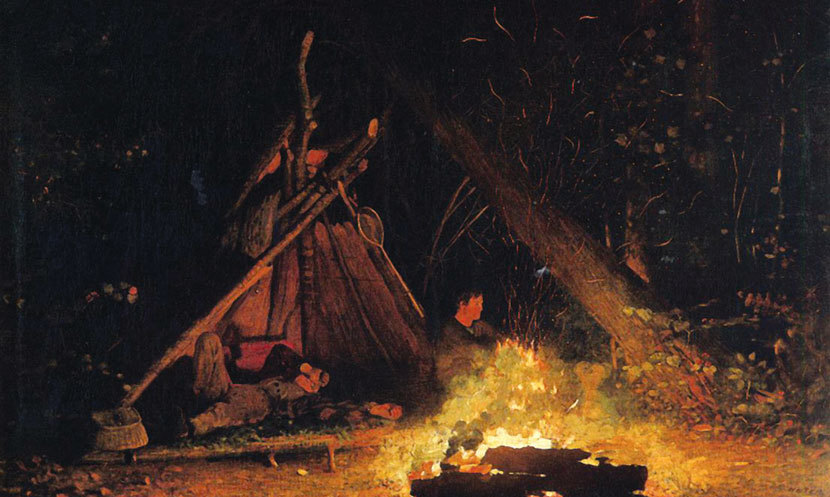Stephen Crane (1871–1900)
From Stephen Crane: Prose & Poetry

125 years ago, in the spring of 1892, The New York Tribune published a number of selections by a twenty-year-old named Stephen Crane, thus launching a remarkable and far-too-short writing career. He would later tell friends that he was eighteen when he became a published author—but this is stretching things a bit, since he had previously been working merely as a stringer for the paper, filing pedestrian (and unsigned) reports on community events and lectures in Asbury Park, where his brother ran a news bureau.
The fourteen pieces in the Tribune between February and July 1892 are of quite a different nature. Along with five later tales that appeared in other venues, they are usually gathered under the rubric Sullivan County Sketches, since they are all set in the New York Catskills, where he spent his summers camping with friends. The first pieces were journalistic sketches about hunting, backwoods living, and Native American lore, but in July the Tribune published five fictional works, including “Four Men in a Cave,” Crane’s first published short story. Ranging from comic grotesqueries to ghost stories, these early tales give us (as one scholar says) “an opportunity to watch young Crane in his workshop.”



